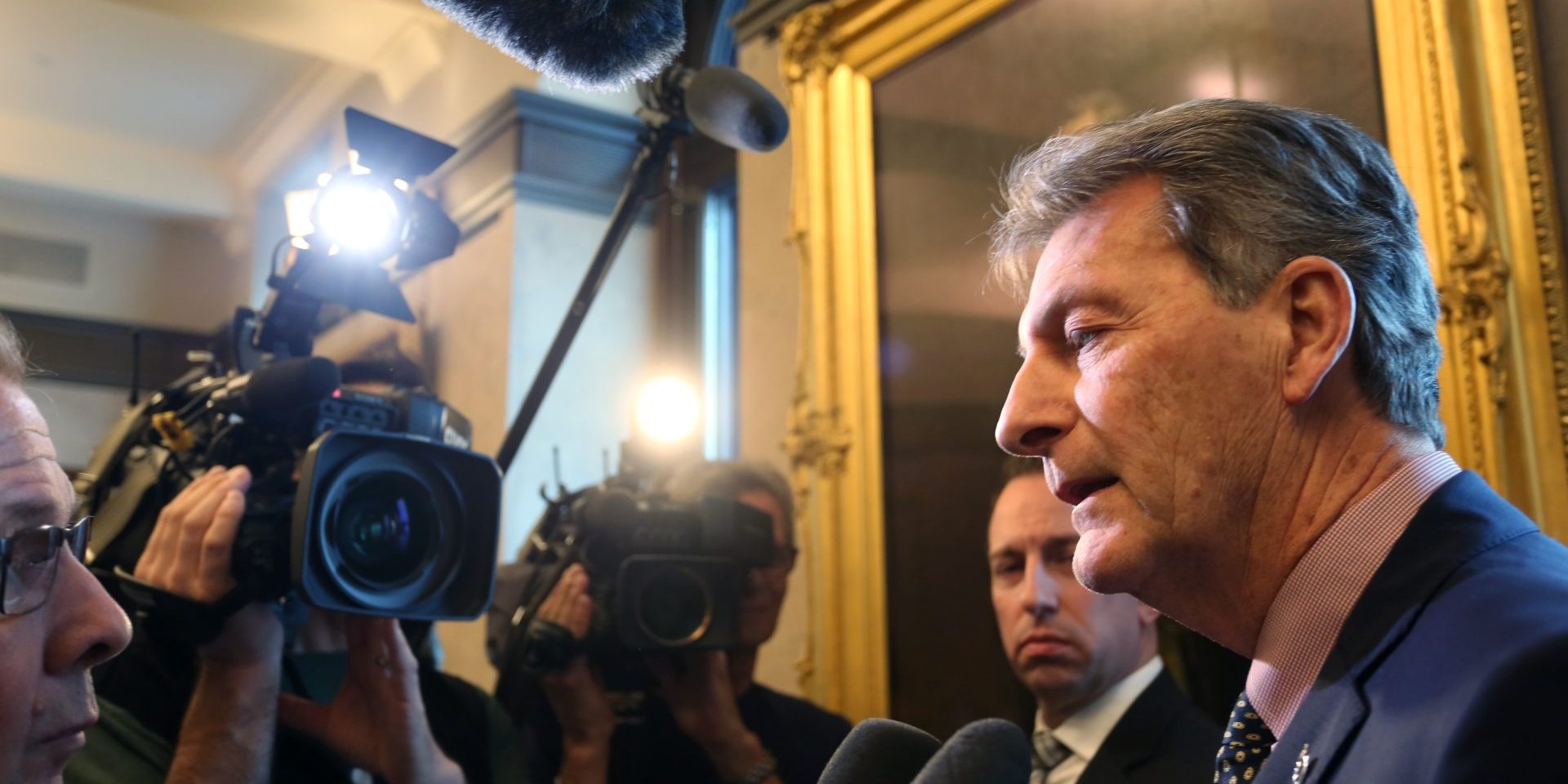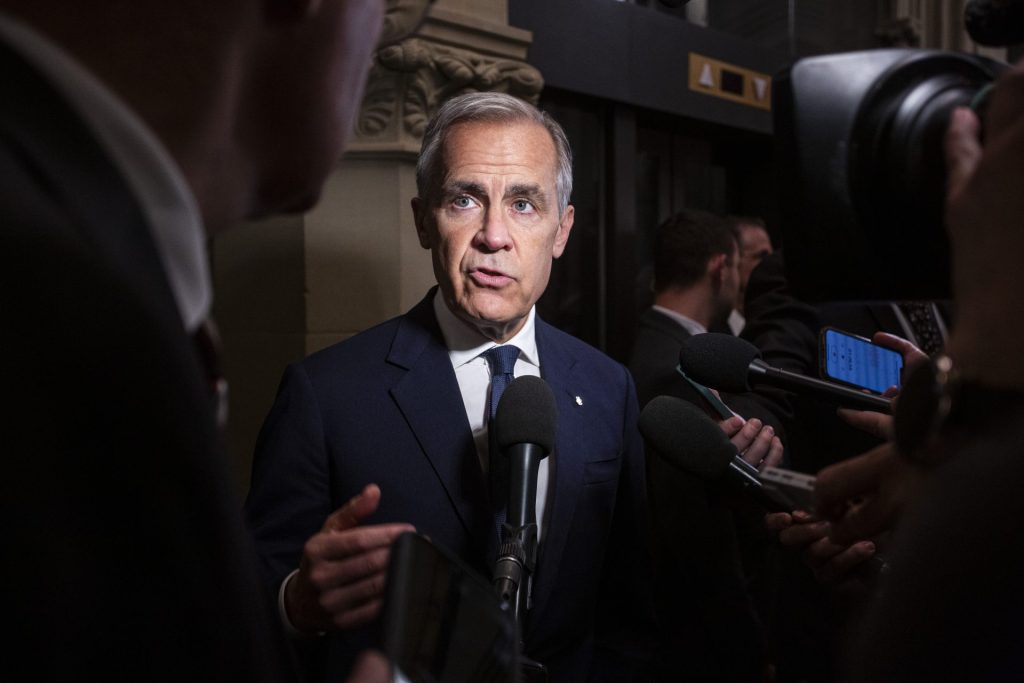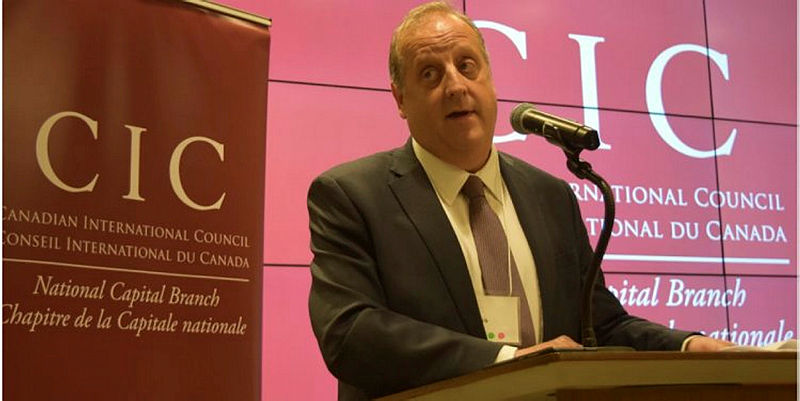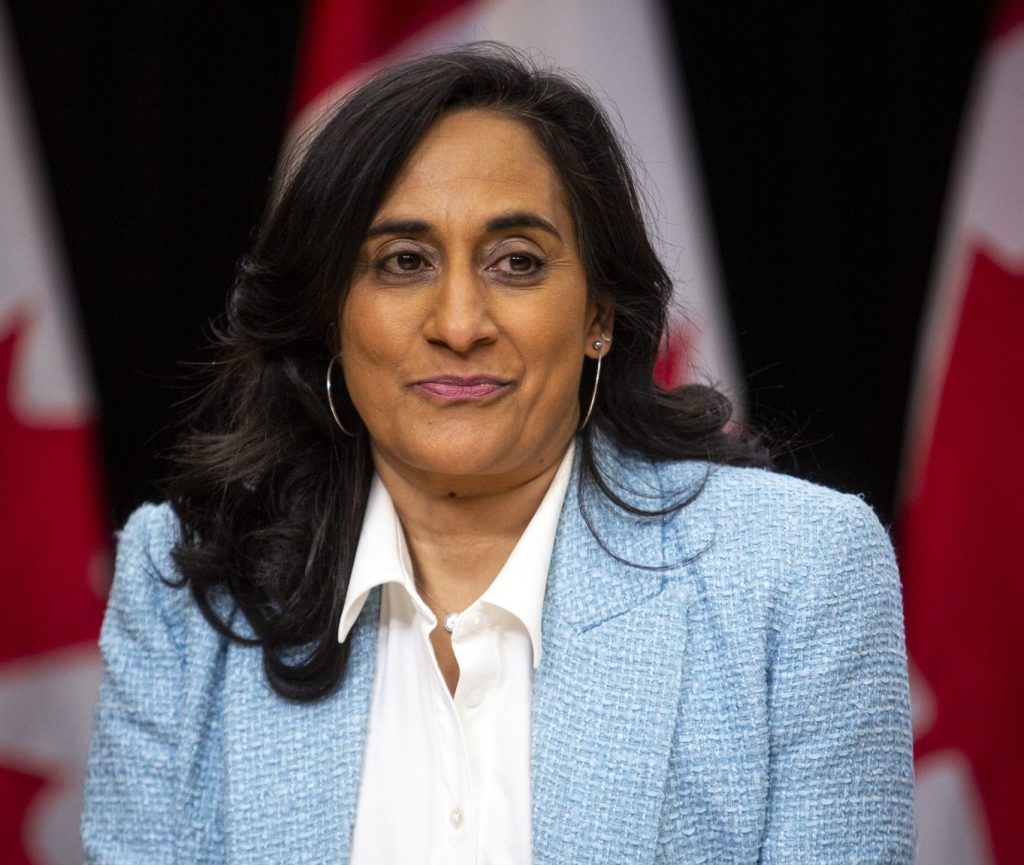Canada ‘kind of in the dark’ on Middle East conflict, says former Liberal MP McKay

With no formal diplomatic ties to Iran and no embassy in the country, Canada is “kind of in the dark” regarding the escalating conflict in the Middle East, says a former Liberal MP who chaired parliamentary committees on defence, public safety, and national security.
“I think the core, critical question is: what’s next?” former Liberal MP John McKay said in an interview with The Hill Times. “The easy part was dropping the bombs. The fallout—and there will be a fallout—is what’s going to preoccupy the rest of us for a while.”
Israel began bombing Iran on June 13, with initial strikes killing top military leaders and scientists. Iran retaliated with missiles and drones the following day, many of which were shot down by Israel’s military. The United States entered the fray 10 days later, with B-2 stealth bombers taking off shortly after midnight, travelling 18 hours before reaching Iran and dropping 14 bombs on three nuclear sites.
Iran retaliated on June 23, firing ballistic missiles at the Al Udeid Air Base in Qatar, which is the largest American military installation in the Middle East. The missiles were intercepted, and there were no casualties. Canada’s Department of National Defence confirmed “up to five” members of the Canadian Armed Forces were present as a part of Operation Foundation, a joint counter-terrorism operation with the U.S., and no Canadians were harmed.

The evening of June 23, U.S. President Donald Trump announced on his platform Truth Social that Israel and Iran had “fully agreed” a “Complete and Total CEASEFIRE” to be phased in 24 hours. Iran and Israel did not comment on Trump’s declaration, and both countries continued to launch strikes.
In an interview with CNN, Prime Minister Mark Carney (Nepean, Ont.) described Iran’s retaliation against the U.S. as opening the door for diplomacy.
“The military action was also a diplomatic move by Iran. We never welcome—obviously—hostilities and reactions, but it was proportionate, it was de-escalatory, it appears to have been previewed,” he said. “It gives an opening for diplomacy—that’s the right way to put it—and the question is does that diplomacy really get traction and move to ending this risk of nuclear proliferation, and does it lead to a broader ceasefire in the Middle East, including in Gaza.”
If Canada had an embassy in Iran, McKay said there would be formal channels of communication with the country. But the embassy closed in 2012 as relations between Canada and Iran soured, “so we’re kind of in the dark,” he said. “It puts a heavy load on CSIS [Canadian Security Intelligence Service], RCMP, CSE [Communications Security Establishment], to monitor the chatter, and also to activate their own human intelligence.”
‘It’s not a level we play at’
Amid the roiling conflict in the Middle East, Canada’s influence is largely limited to de-escalation and aiding Canadians in the region, according to Dennis Horak, who was head of mission in Iran from 2009 until 2012, when Canada ceased diplomatic relations with the country and closed its mission.
“There’s a lot of limitations there as to what we can do because we’re not on the ground,” he said in a recent interview with The Hill Times. Horak was also Canada’s ambassador to Saudi Arabia, Yemen, Oman and Bahrain.

What’s more, Canada doesn’t have much sway in the region, he said, nor in the conflict between Israel and Iran.
“This is a great power game more than anything else,” he said. “The U.S., their influence, they are the kind of players who could have a role. But it’s not a level we play at.”
Horak said Canada hasn’t invested in developing its relationships in the Middle East “for some time now,” but in an episode like this, “I don’t think it would matter much,” he said. “I don’t think our influence would be that dramatic in any case, because it’s just played at a different level than we’re at.”
Canada’s role is limited to talking with allies, urging de-escalation and ultimately a cease-fire to the broader conflict, he said, as this country shares broader international concerns about Iran’s nuclear program, and “efforts to curtail that are something we support,” he said.
An Ottawa-based law professor with ties to the region said Canada could be doing more to aid Iranians with Canadian ties, though.
Hossein Raeesi is a law professor at Carleton University, and practiced criminal and human rights law in Iran for decades. He said he lost contact with his mother and siblings in Iran last week when Iranian authorities cut off the internet in the country.
“I’m worried about my mom,” he said, who was granted a visa to visit Canada and was about to purchase a plane ticket before the war broke out.
Canada could provide humanitarian aid, and make it easier for Iranians with ties to this country to come here, while also urging de-escalation on the global stage, he said.
“Civilian Iranians are against the regime because this war is a war between the state of Israel and Islamic Republic,” Raeesi said. “It’s not a conflict between the Iranian people with the state of Israel.”

Airspace has been closed over Iran and Israel as missiles fly, and Foreign Affairs Minister Anita Anand (Oakville East, Ont.) said Global Affairs Canada (GAC) has consular officials at “many borders,” including Azerbaijan, Armenia, Turkey, and Jordan, to aid Canadians in leaving safely.
“We have land transport going, we have air transport available,” she told reporters on June 24, including a chartered flight for 100 people. GAC said as of June 24, 600 Canadians, permanent residents, and family members have left Israel, Iran, and the West Bank.
Anand said she spoke with Iran’s Foreign Minister, Abbas Araghchi, “to first indicate the need for the safety and security of Canadians in Iran,” she said, and to “urge for a diplomatic and peaceful resolution to the conflict and a return to the negotiating table.”
She said she also “advocated” for the victims of Ukraine International Airlines Flight 752, which was shot down in January 2020 by Iran’s military shortly after taking off in Tehran, killing all 176 occupants, including 55 Canadians.
“We have not had diplomatic relations with that country since 2012, and we have declared the Iranian regime a terrorist entity in Canadian law. So it was unprecedented, but the reason for the call was very specific,” Anand said.
‘Forge our own path’
Kaveh Shahrooz, a lawyer and human rights activist, is a former senior policy adviser on human rights at GAC, said Canada has an “outsized” role to play, given the large population of Iranian diaspora in the country.
“It is also, incidentally, the place where a lot of people with ties to Iran’s regime have parked their money, brought their families and, in some cases, moved to themselves,” he said.
A lack of a formal diplomatic relationship doesn’t stop Canada from promoting democracy and human rights, he said.
Canada has been deepening ties with other allies globally recently, signing a security and defence partnership with the European Union at a joint summit ahead of this week’s NATO meeting.
Shahrooz said it’s indicative that Canada is forging its own path on foreign policy, separate from the U.S.
“For a long time, we had simply followed the United States. But I think it really is time for us—in a variety of different avenues, not just with respect to the Middle East—for us to forge our own path and build our own foreign policy,” he said. “It’s not even entirely clear what American policy with respect to Iran is, but I would very much like to see a coherent Canadian policy that values democracy and human rights.”
Anand addresses concerns of Iranian ‘sleeper cells’ in Canada
As reported in The Globe and Mail, former justice minister Irwin Cotler warned of Iranian “sleeper cells” being activated in Canada. Speaking to reporters in The Hague at the NATO Summit, Anand said the feds remain concerned about the issue.
“In addition to Mr. Cotler’s remarks, we are very concerned about foreign interference, including the types that were highlighted by him, and we’re very concerned about the Iranian regime, generally speaking, that’s why we declared it a terrorist entity,” Anand said.
Canada has listed the Islamic Revolutionary Guard Corps as a terrorist entity under the Criminal Code since June 2024. Two years prior, Canada designated the Islamic Republic of Iran as a regime that has engaged in terrorism and systematic or gross human rights violations, and has placed numerous sanctions on the country.
Global Affairs Canada lists the nation’s threat level for terrorism at “medium,” meaning a violent act of terrorism could occur. Canada has been at this level since October 2014.
McKay said the Iranian Revolutionary Guards, a branch of Iran’s military, has “burrowed deeply in Canadian society,” and Canada is “clearly a target for that kind of activation.
“Whether or how they will be activated is the first question,” he said. “Given the degradation of the Iranian leadership, I think it’s a live question as to how active or how effective they could be.”
Editor’s note: The headline was updated at 11:32 a.m.
mglass@hilltimes.com
The Hill Times






 LICENSING
LICENSING PODCAST
PODCAST ALERTS
ALERTS













